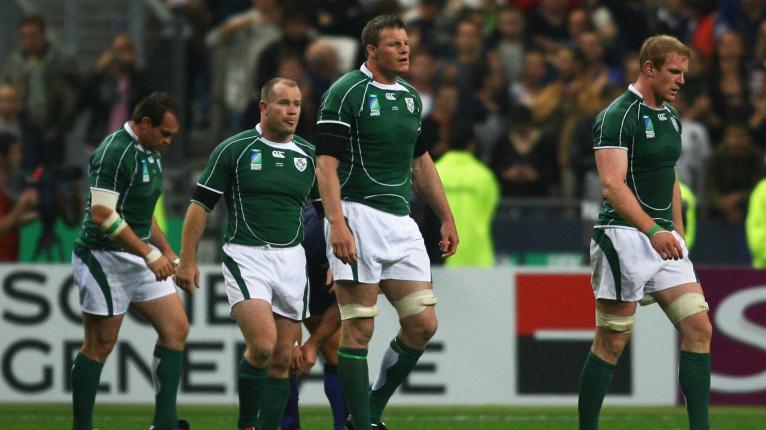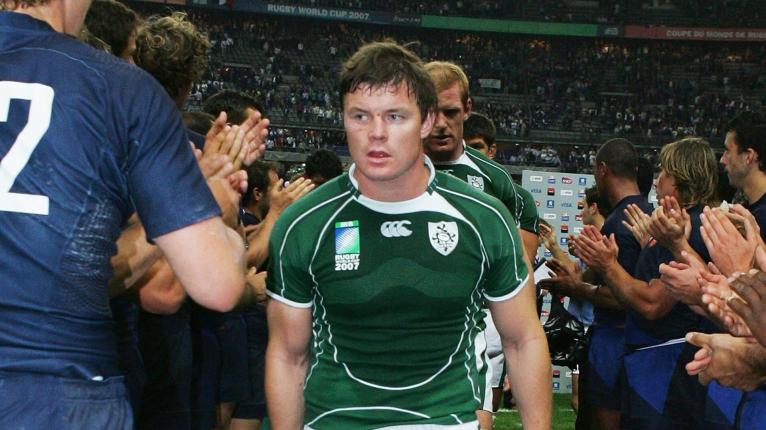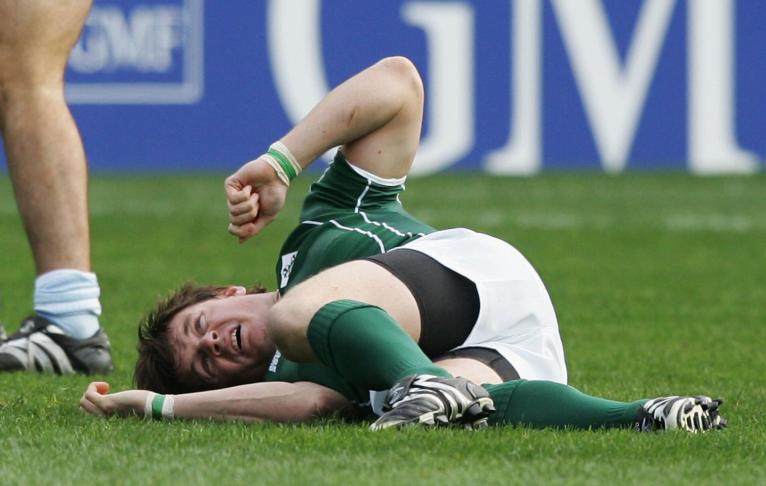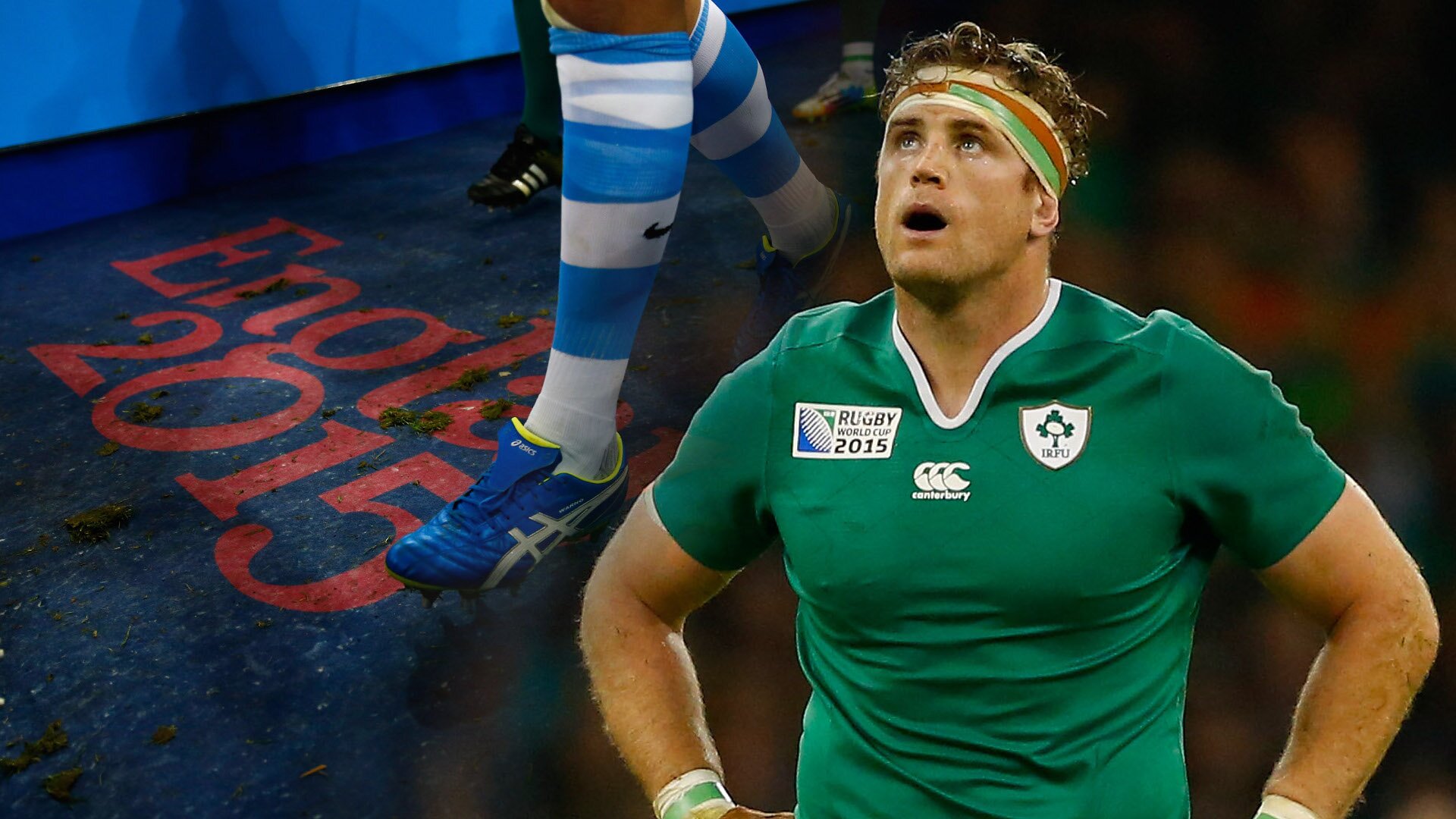The warning from history this Ireland side can't ignore going into a World Cup year

Joe Schmidt’s hint that he just might be leaving Ireland at the end of the 2019 World Cup wasn’t the only post-match quip to catch the eye when the curtain came down on Saturday on the November Test window.
Over in London, a line arrived from England’s Eddie Jones that should help keep Schmidt and his players fully on their toes between now and the eagerly-awaited tournament in Japan. ‘You can be the best team now and not win the World Cup,’ warned the English coach.
Very true.
Regardless of what materialises in the upcoming Six Nations, Ireland will travel to Japan heaped with an expectation far in excess of the excess hype they travelled with to the 2007 edition… and every Irish supporter frighteningly knows what happened on that occasion in France.
After obliterating both South Africa and Australia in November 2006, Eddie O’Sullivan was suddenly fielding questions about Ireland lifting the trophy 11 months later. This giddiness didn’t dim with the loss of the championship title to France on points difference. It only ramped up further.
However, rather than create history, Ireland arrived home prematurely from the finals, their berets rammed between their tails after they were embarrassingly knocked out at the pool stages. Meanwhile, the South Africans, whom they had buried the previous autumn in Dublin, went the whole way and lifted the trophy.
It’s a painful history lesson every Irish fan must not forget in this run-up to Japan 2019. Nothing in set in stone just because of what a team does the previous November, so stones on the road can be very much expected.
It’s one thing going undefeated in a four-game November programme mostly played in Dublin, quite another aspiring to go seven weeks undefeated in a country as unfamiliar as Japan will be.
That said, Ireland are shaping up nicely. It was lack of squad depth that left Schmidt all at sea at England 2015. The coach was unable to cope at the quarter-final stage minus injured quartet Paul O’Connell, Peter O’Mahony, Johnny Sexton and Jared Payne while Sean O’Brien was suspended.
Three years later, he has taken great strides to lay foundations to ensure Ireland won’t be as exposed again if that type of major emergency materialises.

Ireland’s four-match November programme was the equivalent of a World Cup pool and their dry-run was a useful exercise with the challenge of Scotland, Japan, Russia and Samoa in mind. Thirty-five players were given starts, six more capped as replacements. There were three debutants, Schmidt’s appetite to have a fresh look remaining healthy.
This squad is now very definitely his own. Unlike in 2015, when he travelled with a selection that was much inherited from the previous regime, only a dozen of the 41 players that played this month were capped before he took over in November 2013.
With a World Cup campaign in mind, it was pleasing to see the curveballs tossed their way in recent weeks dealt with efficiently.
Look at how there was no loss of midfield focus with Robbie Henshaw a last-minute withdrawal against Argentina. How there was no back row panic with seeing the luckless O’Brien bundled out of the series with a broken arm versus the Pumas.

And how there was no big drama that Dan Leavy had to cry off from the No7 berth to face the All Blacks. Josh van der Flier stepped up at the captain’s run and didn’t flinch from the gargantuan responsibility he was suddenly handed.
Certain positions still demand more attention than others, though. None more so than out-half given how Ireland went from Ian Madigan’s tears of joy to tears of despair in the space of seven 2015 days in Cardiff.
The back-up No10 had the high of successfully stepping off the bench for Johnny Sexton against France followed by the career low of starting against Argentina and not being able to exert the necessary play-making influence.
Madigan’s club situation was to blame, his lack of match time as Leinster out-half leaving him underprepared when handed the keys of the Ireland kingdom.
Lesson learned, it was Schmidt who levered Joey Carbery out of Leinster last summer to ensure he would get ample time as Munster No10. That is exposure now consolidated in the Test arena, the youngster being just one of two players in the Ireland November squad to appear in all four matches (Luke McGrath the other).

Having Carbery up to speed in case of a Sexton emergency is of paramount importance, but there is still work to be done. Carbery’s involvement in the big two against Argentina and New Zealand was only fleeting, so there is a debate to be had about giving him a Six Nations start to further ramp up his experience. The round three fixture away to Italy in Rome at the end of February is a perfect opportunity to give him a first championship start.
Conor Murray’s November absence can now also be considered a blessing in disguise. In Schmidt’s 58 games prior to this month, the Sexton/Murray partnership had been relied on to start on 36 occasions, so the sight of Sexton twice pairing up with Kieran Marmion, a player he had only ever started with once before, was another step forward in positively bringing the squad along.
Other excellent developments were the continued growth of fearless young duo James Ryan and Jacob Stockdale. They have each become inspiring players in a short space of time, standout examples to the multiple rookies Schmidt now has on his books as to what can be quickly achieved if the hard work is put in.

Important, too, was Niall Scannell’s on-going emergence as the starting back-up No2 to Rory Best, the veteran whose place at the top of the pecking order is secure.
With so many resources, Schmidt will have a few headaches cutting his choices down to the permitted 31 for Japan and the way he selects through the Six Nations will be intriguing. Does he go all out with his best team every week or mix it up as if it is a World Cup assignment?
He will spend his winter satisfied that most of the November stats stacked up nicely. Four wins for a 100 per cent record. Twenty tries scored, just four conceded. Forty-one clean breaks created, just 19 given up.
An immaculate scrum, with all 27 won; excellent discipline of just 19 penalties conceded in 320 card-less minutes, unlike the opposition who gave up 40.
Only the lineout, where eight throws were lost, was a cause for concern, particularly the pressure it comes under when its prime jumpers and hooker Best have been replaced near the end of a big game.
That’s a teaser to mull over, but it’s a nice one for Schmidt to have after his team came through a November programme undefeated for the third time in his fifth – and likely last – autumn series.










































































